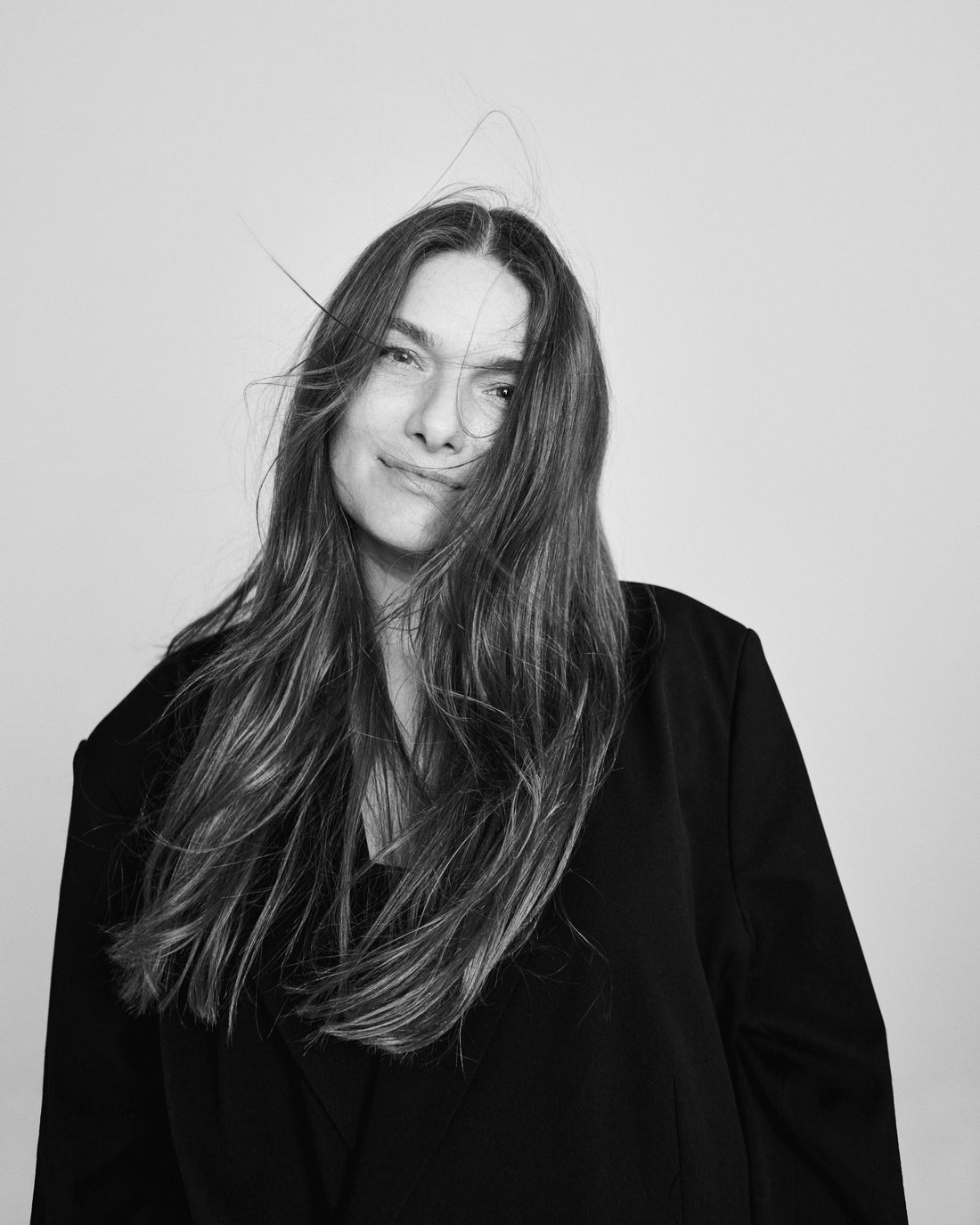
Det anerkendte site Astma Allergi Shoppen har interviewet vores stifter, Katja Rosasco, for at blive klogere på allergi og allergivenlig hårpleje
Del
Hvad er din baggrund, og hvordan fik du idéen til at skabe hårprodukter?
Jeg er uddannet frisør og hårstylist og har arbejdet med hår i 15 år. Ideen til Meishai kom for mange år siden. Jeg er født med allergi, og senere i livet blev jeg forelsket i hår og hårbranchen. Det gik hurtigt op for mig, at når det kommer til hårprodukter, så var der to verdener. Min professionelle verden med high-performance produkter i smukt design, som man købte i salonerne eller high-end butikker, og så den verden, jeg levede i privat, hvor jeg kun kunne bruge produkter, der var certificeret af Asthma Allergy Nordic. Disse købte jeg som regel på apoteket. Men selvom man har allergi, sætter man stadig pris på god kvalitet og et smukt design, så jeg drømte om at forene disse to verdener. Efter mange års research skabte jeg Meishai - high-performance hårpleje i et smukt design, uden uønskede ingredienser for vores sundhed og miljø, certificeret af Asthma Allergy Nordic.
Hvad har været svært i processen?
At hvert produkt skulle levere high-performance resultater og leve op til et professionelt niveau, samtidig med at skulle leve op til de ekstremt høje krav fra Asthma Allergy Nordic.
Hvordan har kunderne taget imod Meishai?
Virkelig godt - taget i betragtning af at Meishai er jo to verdener, der mødes, og for første gang bliver Asthma Allergy Nordic certificerede produkter præsenteret som noget high-end og luksuriøst.
Hvilke ingredienser er det, som typisk giver folk problemer i hovedbunden (når man har allergi eller er sensitiv), og hvorfor?
Nogle af de ingredienser, der kan give problemer, er skrappe sulfater, parabener og visse alkoholer. Sulfater er et rengøringsmiddel, der fjerner snavs osv., men nogle sulfater er så kraftfulde, at de desværre også fjerner naturlige olier fra hår og hovedbund, hvilket kan føre til tørhed og irritation, især hos dem med sensitiv hud. Parabener, der bruges som konserveringsmidler i mange hårprodukter, har været forbundet med allergiske reaktioner og hormonforstyrrelser hos nogle. Derudover kan visse typer alkohol være for stærke og udtørrende for huden, hvilket kan føre til irritation og kløe.
Hvad skal man som forbruger se efter, når man køber hårprodukter, og hvad skal man forsøge at undgå?
Jeg ville undgå produkter med de skrappe sulfater, parabener og alkohol. Og gå efter hårprodukter med milde ingredienser. I forhold til shampooer så gå efter dem med milde skummemidler og gerne ingredienser som naturlig glycerin og saccharide isomerate, der sørger for at bevare huden og hårets egen naturlige fugt og giver en dyb hydrering, mens vi renser.

Er det, hånden på hjertet, muligt at lave en allergivenlig shampoo, som også plejer håret og sikrer, at det ikke filtrer helt sammen?
Hånden på hjertet, ja. Jeg er selv overrasket over det - men Meishai Shampoo er et godt bevis. Vi har sågar kunder, som næsten synes, de ikke behøver conditioner efter, så blødt gør den håret - selvom jeg nu altid ville anbefale at bruge conditioner for at forsegle og beskytte håret.
Hvorfor er det man skal være varsom med sulfater?
Sulfater er til for effektivt at fjerne snavs, men nogle af dem kan være så kraftfulde, at de også kommer til at fjerne hudens egne naturlige olier, f.eks. sebum. Denne olie er en, vi selv producerer, og den er til for at opretholde hudens/hovedbundens sundhed og beskyttelse. Langvarig brug af de kraftfulde sulfater kan derfor resultere i tørhed og irritation.

Nogle oplever rød og irriteret hårbund på trods af allergivenlig shampoo. Har du nogle gode råd til det problem?
Svaret til dette kan være lige så individuelt som vi mennesker er forskellige. Med det sagt så er der et par ting man kan tjekke ret hurtigt.
- Kan der være en af ingredienserne, som man reagerer på? - kan man finde en mildere allergivenlig shampoo.
- Hvor hyppigt vasker man håret? - og kan man evt. vaske mindre for at give hovedbunden lidt ro.
- Kunne man vaske i mindre varmt vand? - da varmt vand også kan udtørre ekstra, især hvis man har eksem eller tørhed/irritation i forvejen.
- Sørg for at massere shampooen forsigtigt rundt i små cirkler - så man undgår overdreven gnidning og skrubning.
- Undgå at gå i seng med vådt hår, da hår og hovedbunden ikke kan tørre optimalt og derfor vil være våd/fugtig i længere tid.
- Hvis det fortsætter, kan det være, man skal søge læge.
Til afslutning på dette spørgsmål vil jeg også huske på, at vores hår og hovedbund er en del af os og kan reagere mere, end vi tror, på hvordan vi som mennesker har det. Stress, ked-af-det-hed, sorg, chok, hormonelle ændringer osv. er alle følelser, der kan komme til udtryk i vores hovedbund og hår. Og dette er præcis, hvad der gør det så spændende at arbejde med hår og udvikle allergivenlige hårprodukter, for der findes ikke helt et ‘one fits all’ svar.
